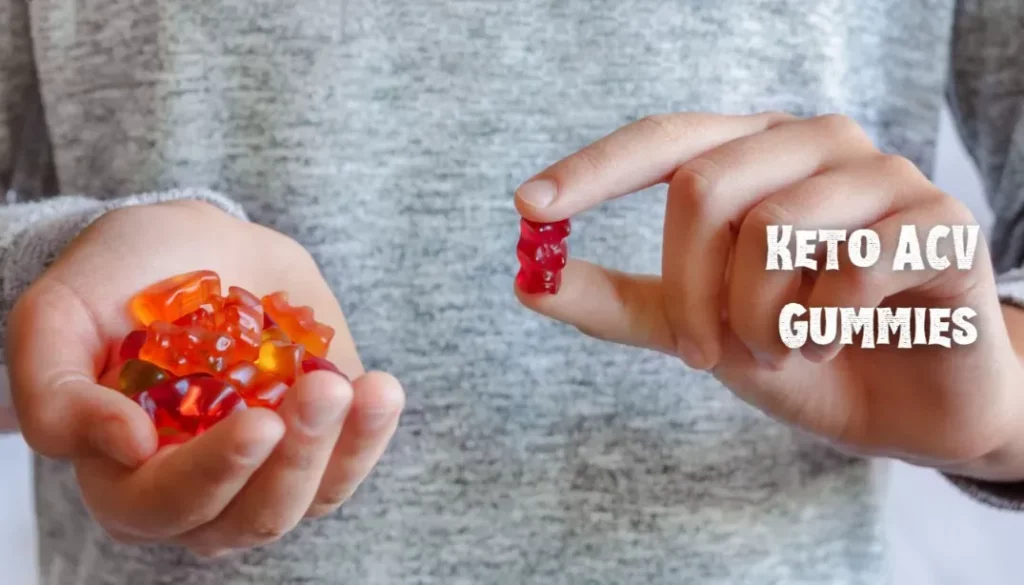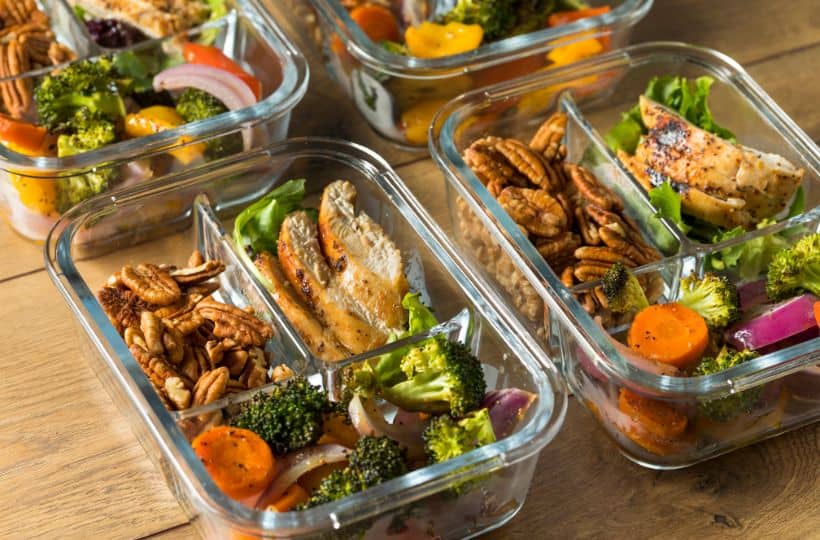Look, I’m going to level with you. After watching thousands of people try keto, I’ve seen why you’re not in ketosis—among every possible way to screw it up. The good news? When you do it right, keto is like discovering a cheat code for your metabolism. The bad news? Most “keto guides” are either too sciencey or full of marketing fluff.
So here’s the real deal: Starting keto is like learning to drive a manual transmission. It feels weird and clunky at first, but once you get it, you’ll wonder why everyone doesn’t do it this way.
Key Takeaways
• Week 1 is going to suck—plan for it: You’ll feel like you have the flu. Stock up on electrolytes NOW, not when you’re already miserable
• Forget “dirty keto”: Those packaged “keto” cookies are keeping you fat. Real food = real results
• You’re probably eating too much protein: This isn’t Atkins 2.0. Too much protein turns into sugar in your body (yeah, really)
• Stop obsessing over ketone levels: If you’re eating under 20g carbs and feel good, you’re in ketosis. Period.
• Meal prep or fail: Sunday prep = weekday success. No prep = drive-thru disasters
• The scale will lie to you: You’ll lose 5-10 lbs of water weight fast, then nothing for 2 weeks. This is NORMAL. Keep going.
The Brutal Truth About Starting Keto (What Nobody Tells You)

Here’s my hot take: 90% of keto “failures” happen because people treat it like a crash diet instead of a metabolic reset. They jump in without understanding what’s actually happening in their body, freak out when they feel weird, and quit before the magic happens.
Think about it this way: You’ve been running your body on sugar (glucose) your entire life. Now you’re asking it to switch to fat (ketones) for fuel. That’s like asking someone who’s only spoken English to suddenly start thinking in Mandarin. It takes time!
The biggest lie in the keto world? That you need to buy special products. I call BS. Our ancestors didn’t have MCT oil or exogenous ketones, and they went into ketosis just fine. Yes, these tools can help, but they’re the cherry on top, not the sundae itself.
Here’s what really happens: When you cut carbs below 20-30g per day, your body burns through its stored glucose (glycogen) in about 24-48 hours. Then it panics a little—”Where’s my easy fuel?!”—before remembering, “Oh wait, I can burn fat!” This transition period is where most people quit.
My controversial opinion: The “keto flu” is 100% preventable if you’re not an idiot about electrolytes. Yet every day I see people suffering because they didn’t want to spend 10onsomesaltandmagnesium.Seriously?You′llspend10onsomesaltandmagnesium.Seriously?You′llspend 50 on “keto pills” but not $ 10 on actual minerals your body needs?
Your Week-by-Week Survival Guide (With Real Talk)
Week 1: The “What Have I Done?” Phase
What’s Really Happening: Your body is dumping water like crazy as it burns through glycogen. Each gram of glycogen holds 3-4g of water, so you’re basically peeing out your stored carbs.
Your Action Plan:
Electrolytes are non-negotiable: Mix this in water 2x daily:
- 1/2 teaspoon salt (sodium)
- 1/4 teaspoon “No Salt” (potassium)
- Magnesium supplement (400mg)
Eat these foods (and pretty much only these):
- Fatty meats (ribeye, salmon, chicken thighs with skin)
- Eggs (whole, not just whites—this isn’t 1992)
- Avocados (nature’s butter)
- Leafy greens drowning in olive oil
- Cheese (if dairy doesn’t hate you)
Track everything: Use Cronometer (not MyFitnessPal—it’s full of user errors). Yes, tracking is annoying. Do it anyway.
Real talk: You might feel like garbage days 3-5. This is your body throwing a tantrum. Give it electrolytes and tell it to shut up.
Week 2: The “Hey, This Isn’t So Bad” Phase
What’s Really Happening: Ketone production is ramping up. Your brain is starting to use them for fuel, which is why the fog lifts.
Your Action Plan:
- Start intermittent fasting—skip breakfast if you’re not hungry
- Add more fat if you’re still hungry (butter in coffee, anyone?)
- Stop weighing yourself daily (seriously, stop it)
My take: This is when people get cocky and cheat. Don’t. You’re not fat-adapted yet. One slice of pizza will set you back a week.
Weeks 3-4: The “Why Isn’t the Scale Moving?” Phase
What’s Really Happening: Your body is adapting at the cellular level. Mitochondria are literally changing to burn fat more efficiently. The scale might not move, but your pants will fit better.
Your Action Plan:
- Take measurements (waist, hips, arms)
- Notice non-scale victories (better sleep? more energy? clearer skin?)
- Consider adding strength training
Truth bomb: This is where most people quit. They expect linear weight loss like on “The Biggest Loser.” Real fat loss is more like a drunk person walking home—lots of zigzags, but you’ll get there.
Weeks 5-8: The “Holy Crap, This Actually Works” Phase
What’s Really Happening: True fat adaptation. Your body now prefers fat for fuel. You might go hours without thinking about food (weird, right?).
Your Action Plan:
- Experiment with OMAD (one meal a day) if you want
- Try working out fasted—you might be surprised
- Start planning how you’ll eat long-term
The Mistakes That Will Sabotage You (And How to Not Be That Person)

Mistake #1: “I’ll Just Wing It”
Why You’re Screwing Up: Failing to plan is planning to fail. Cliché? Yes. True? Also yes.
The Fix: Every Sunday, prep these basics:
- Hard boil a dozen eggs
- Cook a big-ass batch of bacon
- Chop veggies and store in water
- Make a huge salad base
- Prep some fat bombs for emergencies
Mistake #2: “But This Says ‘Keto’ on the Package!”
Why You’re Screwing Up: Food manufacturers know “keto” sells. That “keto bread” with 15 ingredients? Not helping.
The Fix: If it has more than 5 ingredients or you can’t pronounce something, skip it. Eat real food that your great-grandmother would recognize.
Mistake #3: “I’m Doing Everything Right But Not Losing Weight”
Why You’re Screwing Up: You’re probably:
- Eating too many calories (yes, they still matter)
- Snacking on nuts all day (calorie bombs)
- Not actually tracking accurately (that “splash” of cream is 100 calories)
The Fix: Track religiously for one week. Weigh everything. You’ll be shocked at portion sizes.
Mistake #4: “I Feel Like Death”
Why You’re Screwing Up: You’re ignoring electrolytes because you think you’re tougher than biology.
The Fix: Drink pickle juice. Seriously. Or make “ketoade” with the recipe I gave you. This isn’t optional.
Mistake #5: “My Family Thinks I’m Crazy”
Why You’re Screwing Up: You’re preaching keto like a cult member instead of just doing your thing.
The Fix: Results speak louder than words. Shut up and let your transformation do the talking.
Real Food, Real Results: What to Actually Eat
Let me break this down kindergarten-style:
Breakfast Options (or skip it entirely):
- 3 eggs scrambled in butter with cheese
- Leftover dinner (steak for breakfast? Hell yes)
- Coffee with heavy cream (or butter if you’re feeling wild)
- Nothing (intermittent fasting is your friend)
Lunch That Doesn’t Suck:
- Big-ass salad with grilled chicken and ranch
- Lettuce-wrapped burger with extra cheese
- Tuna salad with avocado (mayo is your friend now)
- Protein-rich leftovers
Dinner Like a King:
- Ribeye steak with butter-sautéed mushrooms
- Salmon with asparagus drowning in hollandaise
- Chicken thighs (with skin!) and roasted broccoli
- Taco bowl minus the bowl (just meat, cheese, sour cream, guac)
Snacks (If You Must):
- Macadamia nuts (portion them out or you’ll eat 1000 calories)
- String cheese
- Pork rinds with guac
- Celery with almond butter
The Tools That Actually Help (And the Ones That Don’t)
![Does Roller Skating Help You Lose Weight [2025 Complete Science-Based Guide] (5)](https://gearuptofit.com/wp-content/uploads/2024/02/Does-Roller-Skating-Help-You-Lose-Weight-2025-Complete-Science-Based-Guide-5.webp)
Worth Your Money:
- Food scale ( $ 15): You suck at estimating portions. We all do.
- Electrolyte powder ( $ 20): Cheaper than suffering
- Good olive oil ( $ 25): Fat quality matters
- Blood ketone meter ( $ 40): If you’re a data nerd (urine strips are useless after week 2)
Save Your Money:
- Exogenous ketones (expensive pee)
- “Keto pills” (literally just overpriced minerals)
- Special “keto” foods (marketing BS)
- That $ 300 “keto coach” on Instagram (you have Google)
Let’s Get Real About Long-Term Success
Here’s the thing nobody talks about: Keto isn’t meant to be forever for most people. Gasp! I know, sacrilege in the keto community. But here’s my take:
Use keto as a tool to:
- Break your sugar addiction
- Heal your metabolism
- Learn what real hunger feels like
- Lose the weight you need to lose
Then, transition to a sustainable low-carb approach that works for YOUR life. Maybe that’s staying keto. Maybe it’s paleo. Maybe it’s adding back some strategic carbs around workouts.
The goal isn’t to be the most perfect keto person. It’s to be healthy and happy in a body you love.
Your Action Plan (Do This TODAY)

- Clean out your kitchen: Donate the carbs. Out of sight, out of mouth.
- Go shopping: Use my food list above. Spend more on quality meat, less on packaged junk.
- Prep your electrolytes: Seriously, don’t skip this
- Take “before” photos: You’ll thank me in 8 weeks
- Tell ONE supportive person: Not your negative Nancy coworker
- Download Cronometer: Start tracking tomorrow’s food today
- Join r/keto: But ignore the zealots
The Bottom Line
Starting keto doesn’t have to be complicated. Eat meat, eggs, and veggies cooked in good fats. Keep carbs under 20g. Drink your damn electrolytes. Track your food until you know what you’re doing. Be patient with the process.
Will it be easy? No. Will it be worth it? If you stick with it past the whiny phase, absolutely.
The question isn’t whether keto works—it does. The question is whether you’ll give it an honest shot or quit when things get slightly uncomfortable.
Your body is capable of amazing things when you stop feeding it garbage. But it’s going to complain during the transition. Tell it to shut up and trust the process.
Now stop reading and start doing. Your future self will thank you.
P.S. – If you’re still here, you’re overthinking it. The best time to start was yesterday. The second best time is now. Go clean out your pantry and let’s do this thing.
References & Resources
Volek, J. S., & Phinney, S. D. (2011). The Art and Science of Low Carbohydrate Living. Beyond Obesity LLC.
Westman, E. C., et al. (2018). Clinical Guidelines for Therapeutic Carbohydrate Restriction. Duke University Medical Center. Link
Paoli, A. (2014). Ketogenic Diet for Obesity. International Journal of Environmental Research and Public Health. Link
Bueno, N. B., et al. (2013). Very-low-carbohydrate ketogenic diet v. low-fat diet for long-term weight loss. British Journal of Nutrition. Link
Dashti, H. M., et al. (2004). Long-term effects of a ketogenic diet in obese patients. Experimental & Clinical Cardiology. Link
Harvard Health Publishing. (2020). Should you try the keto diet? Harvard Medical School. Link
Cleveland Clinic. (2023). Ketogenic Diet: What You Need to Know. Link
National Institute of Diabetes and Digestive and Kidney Diseases. (2023). Very Low-Calorie Diets. Link
